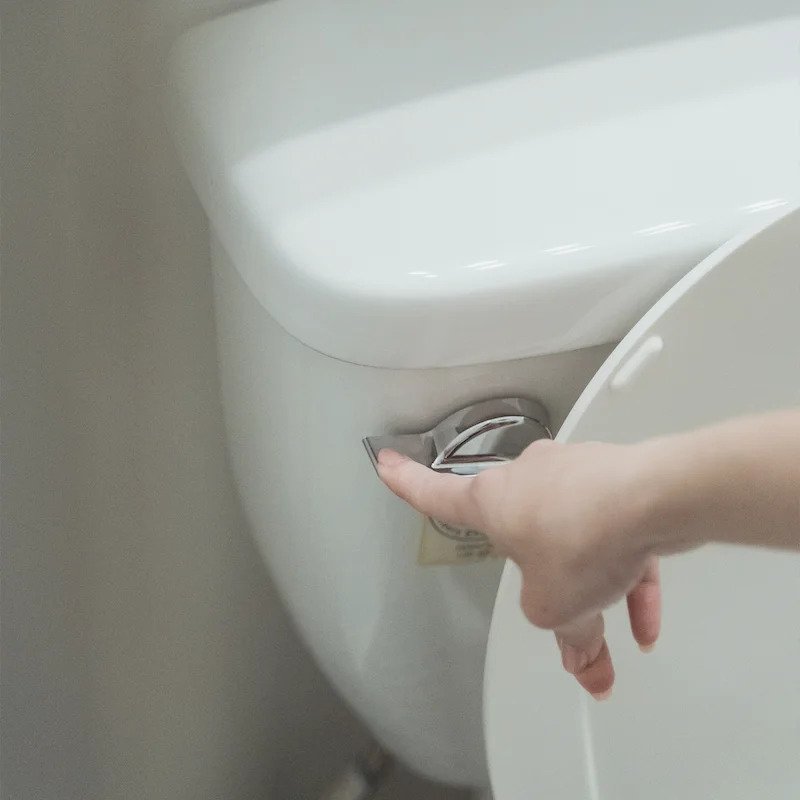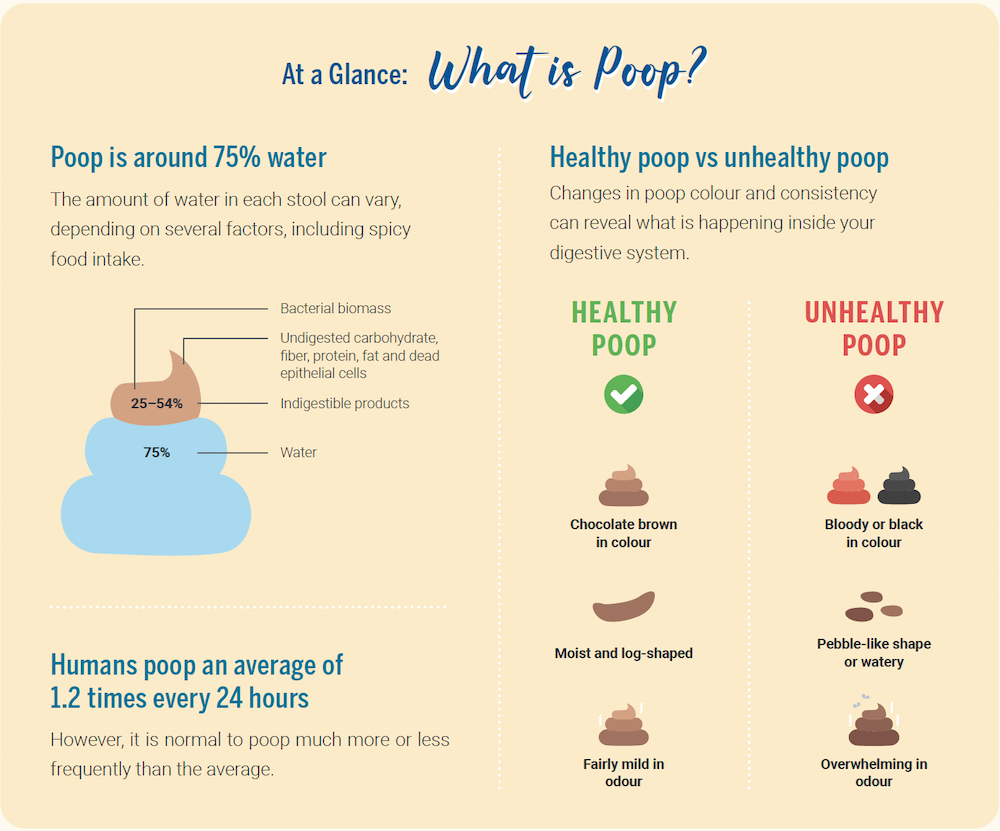5 Things You Need To Know About Your Poop

The characteristics of your poop can show you what is happening inside your digestive system. Dr Zee Ying Kiat, Senior Consultant, Medical Oncology explains 5 things you need to know about your poop, and what it can tell you about your health.
There is a lot of variety in what is considered ‘normal’ when it comes to your poop.
Understanding differences in the colour, consistency and quantity of your poop can provide valuable clues to your overall health. Changes to your poop and bowel habits can also tell you if your digestive system is processing food properly or if there are other potentially serious conditions that require further medical attention.
Here are 5 things about your poop and what it can reveal about your health:
1. This particular shape of poop can be a sign of constipation
Constipation occurs when bowel movements are infrequent, or when stools become hard and difficult to pass. If you notice that your poop is hard and shaped like tiny rocks or pebbles, it may be a sign of constipation.
The large intestine, also called the large bowel, is where food waste is concentrated into poop by absorbing water. When muscle contractions in your large intestine are not working properly, the waste left in your colon may become more concentrated, resulting in harder stools that are difficult to pass.
If you are constipated, drink plenty of fluids and increase fiber in your diet to help alleviate symptoms.
2. The colour of your poop rarely matters
Poop can come in a range of colours, with shades of brown and even green being considered ‘normal’ and healthy for an individual.
Changes in the colour of your poop are usually not a cause for concern. The colour of your poop is generally influenced by the content of your diet, as well as the amount of bile in your stool. Food colouring or colour additives in your food are also frequent culprits of colour changes in your poop.
Only rarely do changes in the colour of your poop indicate a potentially serious intestinal condition. If you notice that your stool is bloody or black in colour, seek prompt medical attention, as it may indicate that there is bleeding in your digestive tract.
3. There is no such thing as pooping too little or too much
There are no set guidelines on how frequently you need to poop. In fact, it is perfectly normal to have bowel movements anywhere between three times a week to three times a day.
You are more likely to have bowel movements in the morning, as your body works overnight to process food. However, having bowel movements at other times of the day does not signal that anything is wrong.
Generally, your bowels are likely to be healthy if your stools are soft, well-formed, and not difficult to push out. If you notice any pain, or if you strain to pass motion, it may be a sign of constipation.
4. Healthy poop sinks, not floats
Healthy poop should sink and not float.
Floating stool may be a result of a diet that is high in insoluble fiber, resulting in excess gas in the stool. Such cases are not a cause for concern, as it is not usually a sign of potentially serious conditions. The stool will typically return to ‘normal’ once you reduce fiber in your diet.
Floating stool may also result from a condition called malabsorption. Malabsorption occurs when the body is unable to process nutrients properly, or when you have an infection, food intolerance, digestive disorder or certain medical conditions. Depending on the cause of malabsorption, your doctor may recommend appropriate treatment to help alleviate symptoms.
5. Look out for oily or greasy stools
Poop that appears oily, has a greasy consistency, and/or is difficult to flush may signal that your body is unable to properly digest fat (i.e. fat malabsorption). These changes in the consistency of your poop may be caused by an infection, celiac disease, or problems with the pancreas, such as pancreatic cancer or pancreatitis.
Fat malabsorption may lead to other health problems, as essential fatty acids are crucial to healthy body function. If oily or greasy stools persist, seek medical attention.

5 Things You Need To Know About Your Poop originally appeared on Parkway Cancer Centre
and has been republished with permission
Further Reading
The article above is meant to provide general information and does not replace a doctor's consultation.
Please see your doctor for professional advice.
